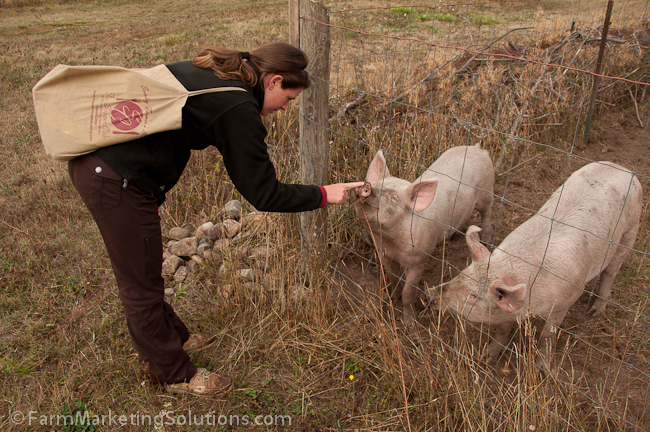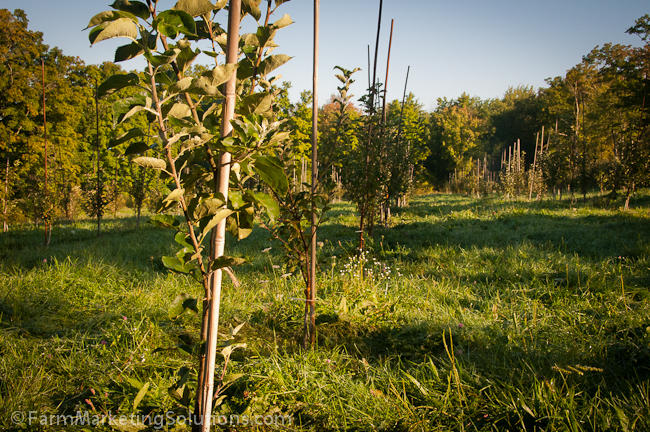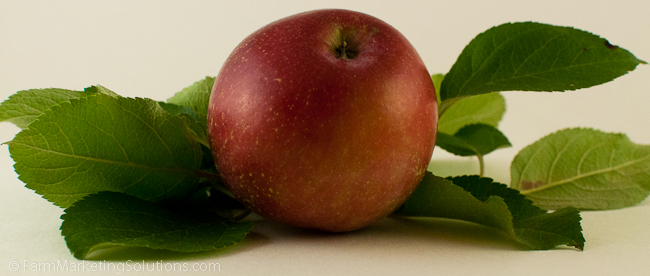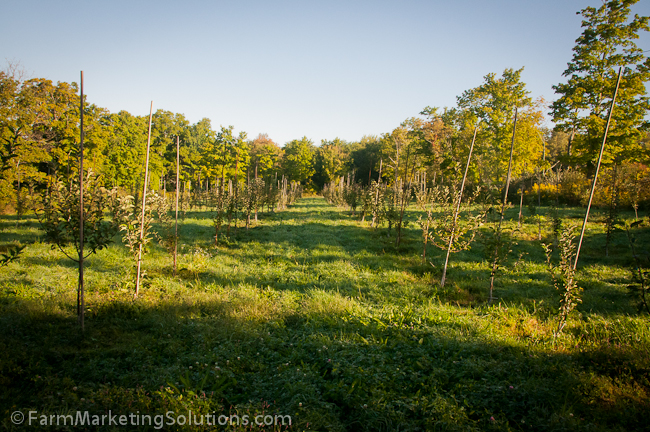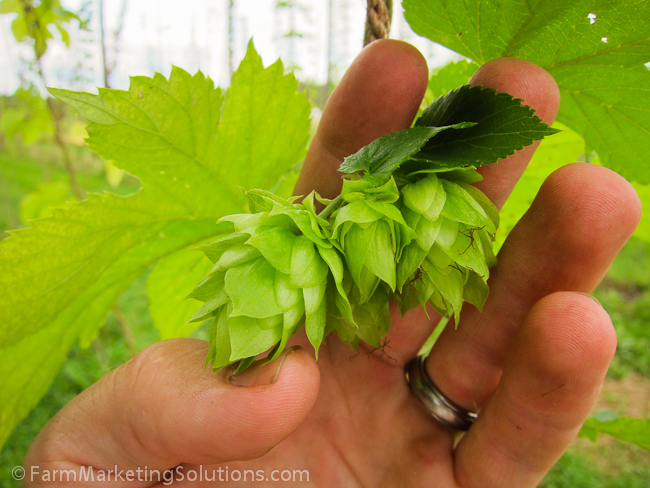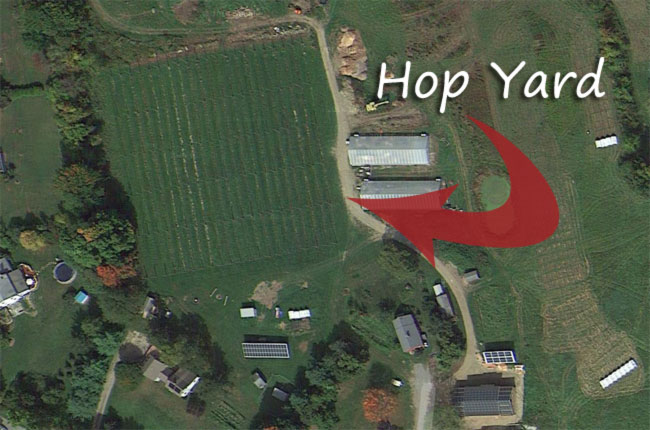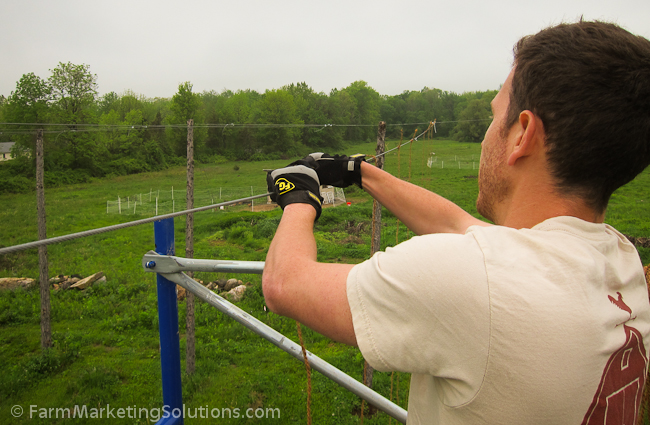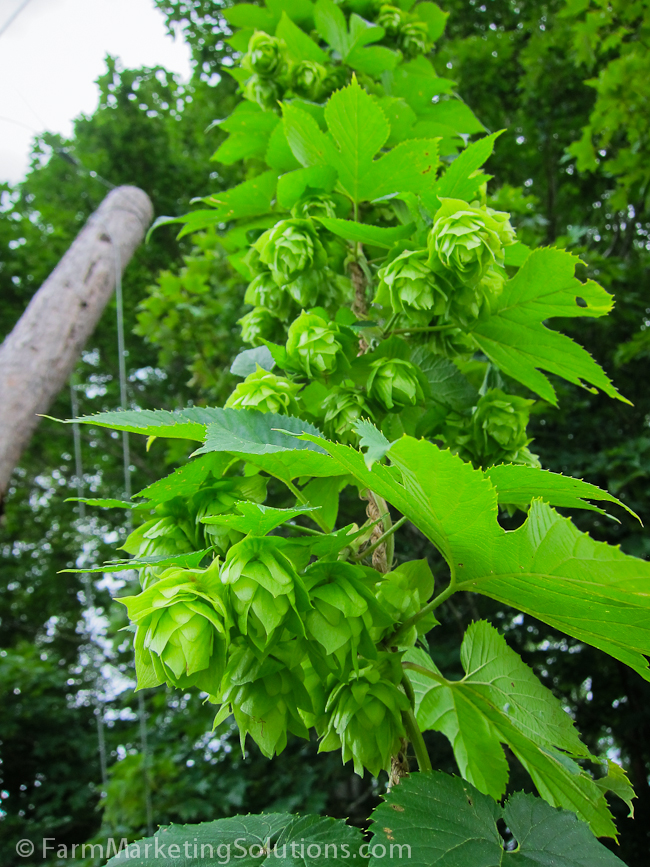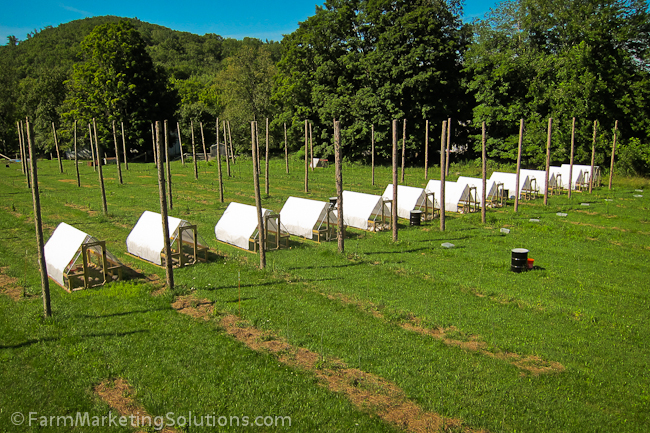As a farmer I am always looking for new ways to market my products. Getting farm products in the hands of willing and eager customers can present some serious challenges. For instance, right now my chickens are doing amazing and producing a lot of eggs considering it is the end of January. My problem is that local farmers' markets are scarce this time of year, I pretty much lose money wholesaling eggs, and it's currently nearly impossible to get people on farm. Actually, as I write this we're in the middle of a snow storm, no one is going anywhere.
We are producing enough food to "feed the world" (I f***ing hate that phrase) but the problem is distribution. How do we get the food to the people now need/want it?
My farm is also at the disadvantage of being kind of remote. It can be tough to get my relatives to drive out here let alone someone who just wants a dozen eggs. So if I cannot get people to come to the farm how then am I going to move my products?
That is an answer tech moguls are trying to answer. But are the answers that they are coming up with the right ones?

A friend of mine sent me this article from Tech Crunch about a new online farmers' market that connects willing customers with farmers in need of a new marketplace. Sounds great right? My opinion as a farmer is both yes and no.
Are online farmers' markets a good idea?
Yes:
I love that people besides farmers are concerned with helping farmers sell and distribute their products. The truth is we do need help with marketing and distribution. I know I do at least, and I'm the guy who started Farm Marketing Solutions. I'm looking for and experimenting with solutions to these problems every day.
As my/our customer base gets more and more online at home and on their phones, having a marketplace that connects with them where and when they want to buy is a beautiful thing. But let's get into some of the disadvantages.
No:
The hard truth about life is that no matter what you do, if you expect to pay your bills then something that you are doing has to make money. No big shocker there. The tricky question is, "where is that money going to come from?" For me as a farm producer my money comes from the eggs, chickens, hops, apples, and vegetables that I grow. For an online farmers' market, that money has to come either from the people buying the product or the people selling the product. They're a middle man, and every good middle man takes his cut.
I sell my chicken for $6 a pound retail. I have to sell it at that price or more (currently contemplating a price increase) in order to remotely come close to making a profit. Now imagine my position when someone is going to take a cut of that, or imagine being the consumer and having to pay $8 a pound for chicken when you can get it in a grocery store for $1.29 per pound. That's tough either way.
Now granted there is theoretically less time marketing my products and distributing them. That's what these services provide. However the price of that can be pretty steep. Here's a real life example:
For Camps Road Farm we used to use GoodEggs.com to market and distribute products in Brooklyn, NY. We would put up a list of things we had for sale, GoodEggs would take orders and let us know what customers wanted, and then we would harvest, process (clean and bag), and drive them into Brooklyn from the farm which is roughly 1.5-2 hours away. After the expense of growing the item, packing it, and driving it into the City, GoodEggs would take a 30% cut of of the sale price. That was more than our net profits in most cases than if we sold it locally ourselves. So we were operating at a loss selling through GoodEggs.

We started out at a 25% commission on GoodEggs and then it was up to 30% . On products where we make 10-30% net profit in the first place that was a steep loss and we couldn't handle it. Especially with the added expense of driving a lower volume of food into the City each week.
Now there's a solution to the driving and distributing problem presented by GoodEggs with GrubMarket. The customer orders it, the farmer harvests it, and GrubMarket comes and picks it up and delivers it to the customer. At least that's how I understand it.

While GrubMarket seems to solve several of the pain points that consumers and producers face with GoodEggs I still have trouble seeing it work long term. I have a hard enough time making money as a farm without having to pay someone to sell and distribute my products. Granted there are farms that function selling primarily wholesale and maybe the margins here will work for their business structure, I don't know. I can only speak to my situation specifically.
Farming is a business of extremely tight margins. Mr. Wonderful on Shark Tank would hate everything about it. Getting rich is not why we do it, but staying afloat is necessary in order to keep farming. So often is the case that the farm is subsidised in some way. Those subsidies can take the form of the Federal Government, a spouse who works in town, a team of investors, or a winning lottery ticket. Whatever the case may be, giving up any more money then we have to is a sure fire way to go backward quickly.
Is this a band-aid to a much larger problem?
I hesitated to even write this post as I try to keep it positive on Farm Marketing Solutions and I really hate to say anything remotely bad about anyone besides myself. My mother always used to say, "If you don't have anything nice to say, don't say anything at all." On this topic I have to admit that I am a little negative.
Our food system is broken. That is the truth of it. It is wrtten about in countless articles, spoken about in videos and by speakers all over the world. Things are not really working out and we're heading toward some sort of global tragedy. The inevitaility of the eventuality of an international food crisis is written on grocery store shelves around the world.
What then is the solution? What can we do to help solve this problem?
The solution is happening, but it is happening on a relatively small scale. People are falling in love with food again. Everywhere new farmers' markets are popping up, people are traveling further and investing more in their food. But until our food policies better support small farms, until more people are willing to buy locally, and until food becomes more of a focus for people instead of an after-thought, we will have to struggle with finding a solution for how to get food to the people who actually want it.
I applaud GoodEggs and GrubMarket for their efforts and ingenuity. Thank you for what you are trying to do. Hopefully we can figure this out.
A Solution for Farmers:
There's something you can do to help further the slow food movement, get good food on people's tables, and grow your business. Tell your story. Transparency sells better than anything else and people are looking for it. Talk about your story, the products you produce and why you love them. The more open you are about your business, both the good and the bad, the more people are going to be drawn to what you are doing which leads to us having a bigger affect on how food policy is written.
If the creation of GoodEggs and GrubMarket is proof that more customers are online then you should be there to. Get to marketing online through: ( links below to free tutorials)
People vote with their dollars and politicians are greedy. Market your farm, tell your story, and buy change with every tomato sold.
















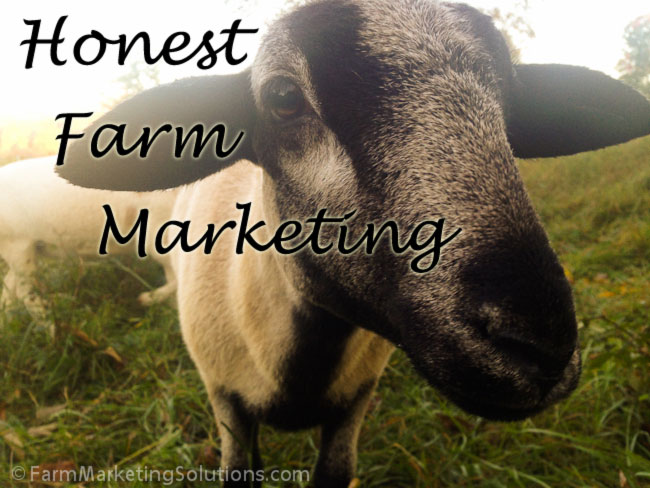 It just so happens that I really love the marketing and business side of farming. Well, I love the marketing side at least. Some of the business stuff I struggle with (here's looking at you small town zoning regulations). Whether it is social media, traditional printed materials, attending events, updating my website and keeping a blog, or just randomly walking around town kissing babies, I've tried it all.
It just so happens that I really love the marketing and business side of farming. Well, I love the marketing side at least. Some of the business stuff I struggle with (here's looking at you small town zoning regulations). Whether it is social media, traditional printed materials, attending events, updating my website and keeping a blog, or just randomly walking around town kissing babies, I've tried it all.




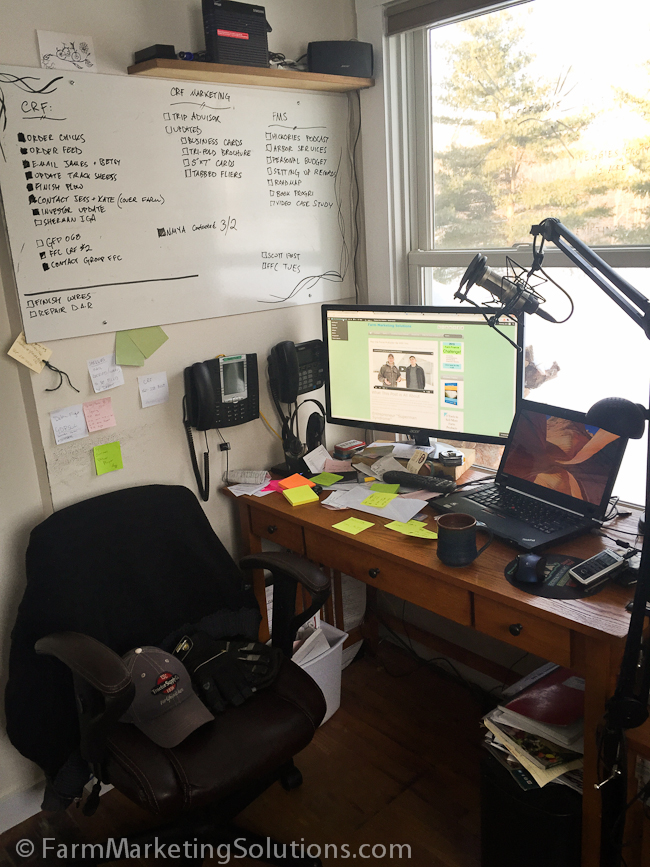


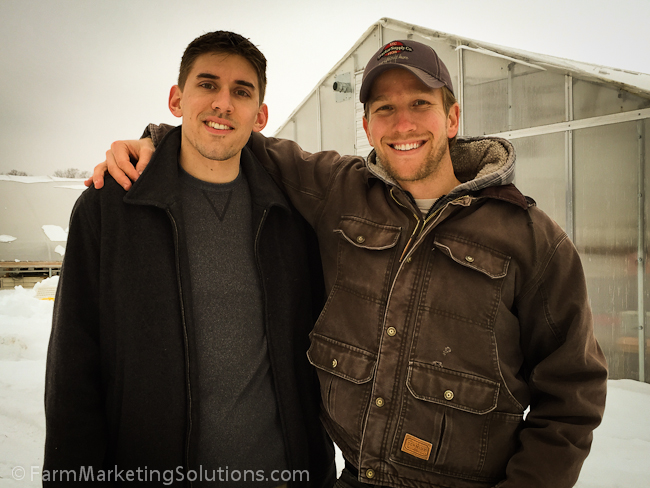
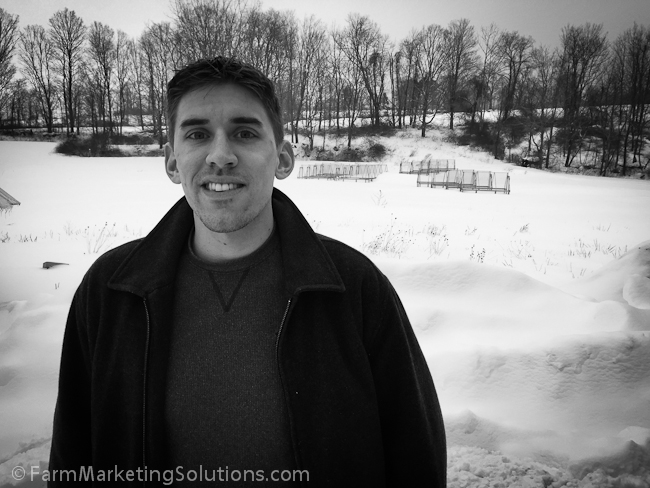
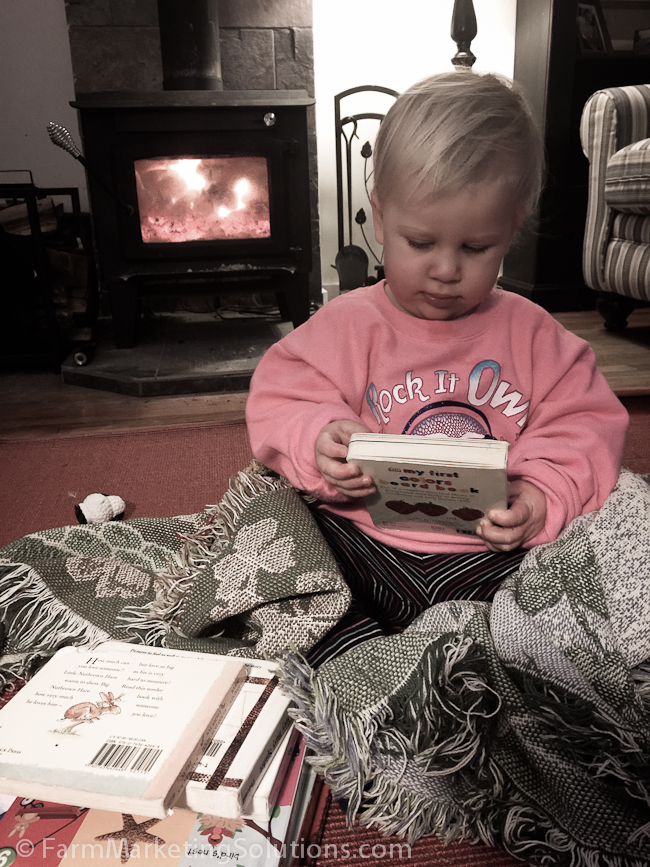 As quasi-hippy parents raising our daughter Mabel, Kate and I don't allow much TV in the house. Coming from a television production background myself, I don't think all TV is bad, just a lot of it. If we're going to let Mae watch TV it is going to be one of two shows,
As quasi-hippy parents raising our daughter Mabel, Kate and I don't allow much TV in the house. Coming from a television production background myself, I don't think all TV is bad, just a lot of it. If we're going to let Mae watch TV it is going to be one of two shows, 







